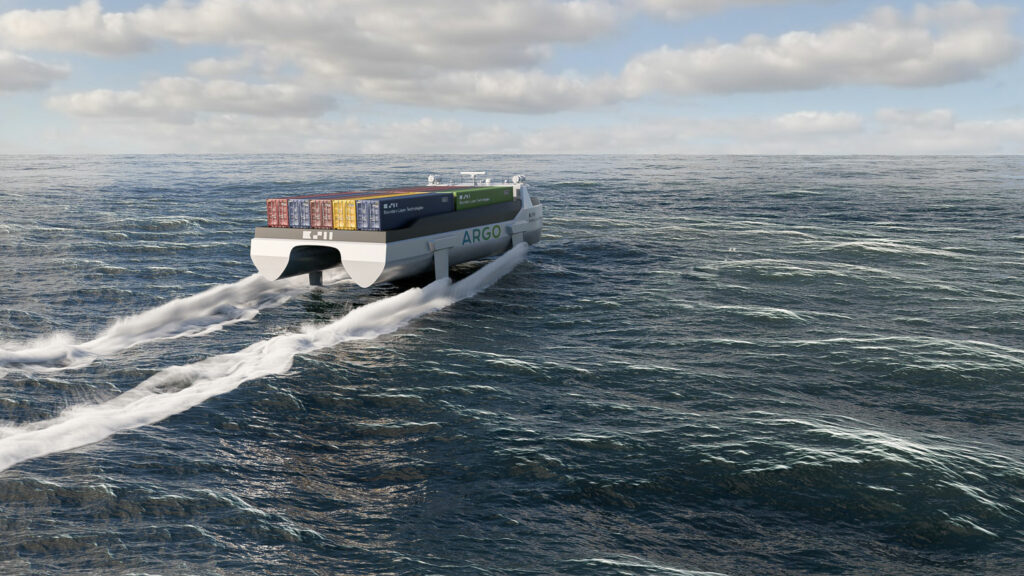Zero-emission hydrofoil containership unveiled
2022-03-01 09:21 Release person:Schindler Logistics
February 28, 2022, by
California-based marine technology startup Boundary Layer Technologies has revealed ARGO — a zero-emissions hydrofoiling containership concept design.

As informed, the company plans to operate these vessels to establish a zero-emission shipping service that can replace air freight along major intra-Asia trade lanes.
The ARGO ship has a gross payload capacity of 200 tons, a range of up to 1,500 nautical miles, and a cruise speed of 40 knots, which is twice that of conventional containerships.
This performance would enable door-door transit times only 15 to 24 hours slower than air freight, but at 50% of the price, according to the company.
ARGO is powered by green hydrogen and fuel cells, which are stored as a liquid inside its two hulls. ARGO can also be applied to replace other transport modes aside from air freight according to Stuart Whiting, Senior Vice President of Global Supply Chain, Logistics & Planning at Schneider Electric.
”We can see ARGO as a beneficial addition to enhance our current feeder and premium ocean freight services around Southeast Asia that are often susceptible to delays,” Whiting said.
The speed and price advantages are enabled by the company’s proprietary hydrofoil technology which is key to allowing ARGO to travel at 40 knots while using a fraction of the fuel that a conventional ship would need when traveling at the same high speed.
A hydrofoil is a submerged wing device used to lift the hull from the water to reduce drag. The company has already completed development of key pieces of ARGO’s technology stack, and is on track to perform full scale sub system tests by the end of 2023.
At 110 ft long and 20 TEU capacity, ARGO is a fraction of the size of conventional containerships. This unusually small size could be the key to solving many supply chain issues, according to Ed Kearney, CEO and Founder of Boundary Layer Technologies.
“ARGO’s small size and payload capacity (comparable to a B747-400F freighter aircraft) cuts dwell time to only 2 hours instead of 3 days, and offers the flexibility of docking virtually anywhere. This allows ARGO to bypass heavily congested ports while also competing with air freight transit times.”
Boundary Layer Technologies’ solution is being well received in the market, according to Per Karsten Stolle, who is a strategic advisor to Boundary Layer Technologies and former Commercial Director of logistics giant DHL.
“From what customers are telling us, the combination of a zero-emission transport solution that can also cut air freight spend would be a gamechanger for helping them meet emissions reduction targets while addressing rising costs from supply chain disruptions,” Stolle commented.
The company is currently selecting launch partners for an intra-Asia ARGO service launching in Q3 2024 to ship finished goods and components for major electronic manufacturers in the region.
It has future plans to launch a larger vessel on a transpacific service for which it has a $180 million letter of intent from the digital freight forwarder, Flexport.
Several months ago, the Californian startup also a fully electric hydrofoiling ferry concept design.
The ferry concept design has a range of up to 100 nautical miles and cruise speed of 40 knots — twice the speed and range of existing electric ferries due to Boundary Layer Technology’s hydrofoil technology and podded propulsion system.




